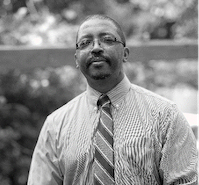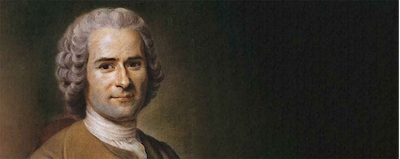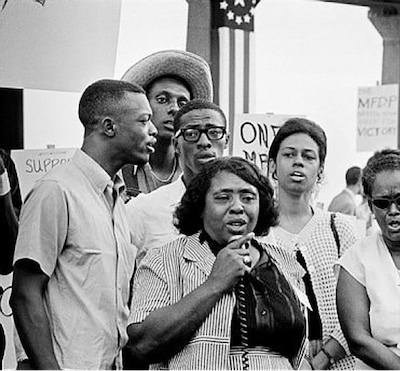Finding the Right Balance Between Freedom of Expression and Professionalism
May 12, 2021
In some regards, my father-in-law and I are very different people. He was raised with a close-knit family on farmland fed by the Susquehanna River in southern Pennsylvania, and I spent most of my formative years in a redlined urban community near a Chrysler automotive stamping plant north of the Detroit River. His family comes from a religious tradition marked by pacifism, whereas the main paternal figure in my life, my grandfather, served in the U.S. Army during WWII until the end of the major conflict in 1945. Nevertheless, my father-in-law and I are similar in various ways: we both share a familiar Midwestern work ethic, our reading choices tend to be non-fiction, we never miss a chance to cook outdoors, and despite our mutual stoicism, laughter comes easily and frequently when we gather. We are certainly not of one accord on many political issues or key elements of our worldview. However, the accumulation of years has given us a modicum of wisdom to focus on our larger concerns such as the wellbeing of our family members and our sense of belonging to something larger than ourselves.
The imprint of familial relationships can also be found among classmates who are engaged in education as a cohort. We get to pick and choose our friends, but we find ourselves bound to family members and classmates who are in our cohort. Moreover, members of the cohort are an integral part of the educational experience in the pursuit of a professional degree. Therefore, the relationships with those within our cohort (and fellow students across campus) comes with the additional expectation of professionalism.
So how exactly does one go about exuding professionalism? A profession has been defined as “a collective of expert service providers who have jointly and publicly committed to always give priority to the existential needs and interests of the public they serve above their own and who in turn are trusted by the public to do so.” (Welie, 2004) The point about the role of public trust cannot be over-emphasized. Professionalism entails collective responsibility, provider competence, internal discipline and peer review, standardization of treatment, fair access to service, non-discriminatory practices, and health promotion through the acceptance of science over opinion. However, a group of practitioners can embrace all these responsibilities and still lose their professional standing if they fail to gain and maintain the trust of the public.
A profession’s ability to serve the public good is embodied within our larger Social Contract. The Social Contract, as Rousseau framed it in the mid-1700s, is our shared pursuit of attaining freedom while also coexisting…individuals submitting their will to the collective will based on agreements with other free and equal individuals. Our individual will is largely fixed on fulfilling individual interests, while the general will is ideally focused on attaining the common good as understood by the collective. In this respect, our modern challenges have been in the fight to determine who is deemed an “equal individual” and resolving the tension between “supporting the common good at the expense of individual liberty.” (Kennedy, 2014)

Wrestling with individual freedoms and the common good: Jean-Jacques Rousseau, a Genevan philosopher, writer, and composer of the 18th century (1712 – 1778)
In recent times, students on our campus have occasionally struggled with incidents regarding individual communication and politicized speech that, in some instances, have fallen short of our professionalism standards. Allow me to be clear here. I fully support the freedom of expression among the student body, staff, and faculty in accordance with our program, school, and university policies. However, any breach of professionalism that constitutes discrimination or harassment and/or significantly interferes with the Program’s ability to teach effectively within the cohort educational environment will be referred to the Office of Equity for investigation and could result in disciplinary action, including program dismissal. Moreover, on-campus and off-campus behavior that can be construed as discriminatory or threatening in nature damages the public trust regarding our ability to fairly provide health care to all individuals who may seek our services. These failures of professionalism, should they occur, will be subject to review by the faculty in partnership with the Office of Equity.

Determining who’s free in a free and open society: Fannie Lou Hamer (1917 – 1977) attempting to gain access to the 1964 Democratic National Convention, on behalf of the Mississippi Freedom Democratic Party, as the official delegation from the state of Mississippi.
Legal requirements and moral principles are not one and the same. Our Program values include respect, integrity, collaboration, diversity, accountability, leadership, and altruism. The way we strive to embody these values may vary based on one’s personal approach or political affiliation, but our commitment to these values is non-negotiable. If individuals considering enrollment at the University of Colorado Physical Therapy Program do not share these values, then I strongly encourage them to pursue their DPT degree at another institution that is better aligned with their personal views.
My relationship with my father-in-law has endured because of our effort to find common ground and our dedication to a shared ideal. I implore each and every member of our Program to be thoughtful in their communication with one another and to afford each other the level of respect that is appropriate for colleagues who share their professional endeavor. After all, that’s what physical therapy students are: colleagues. Partners in one’s educational efforts today and in the professional efforts that lie in the years ahead.
Let our actions today be a model for those who will eventually follow in our path.
Notes:
Kennedy S. The Social Contract and the Social Safety Net. Journal of Civic Literacy. 2014.
Rousseau JJ. The Social Contract: or, Principles of Political Right. Translated by Tozer HJ and Matravers D. New York: New American Library; 1974.
Welie JVM. Is Dentistry a Profession? Part 2. The Hallmarks of Professionalism. J Can Dent Assoc. 2004; 70(9):599–602.